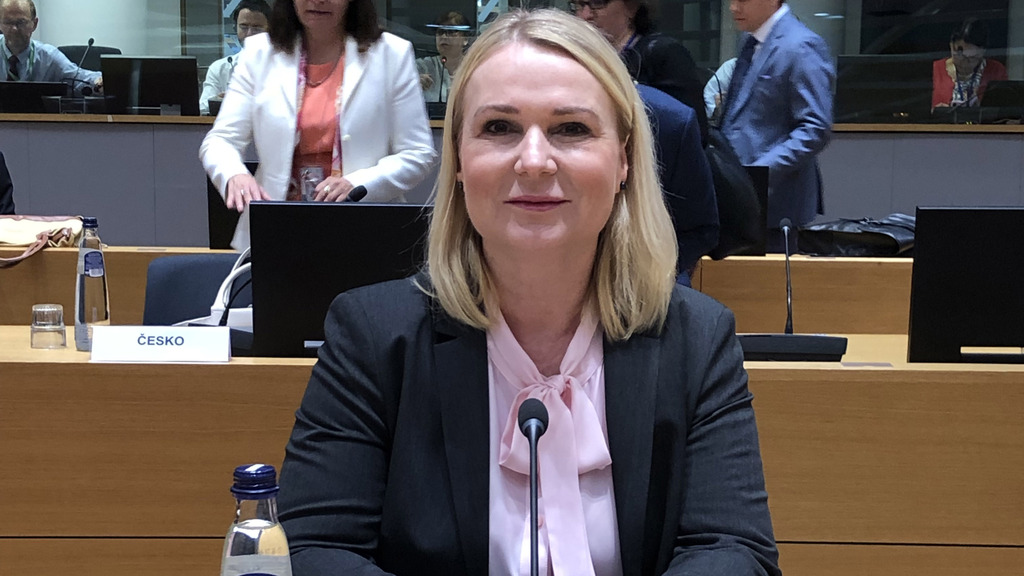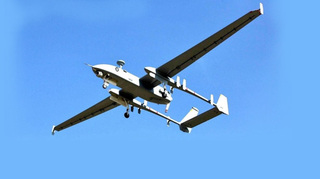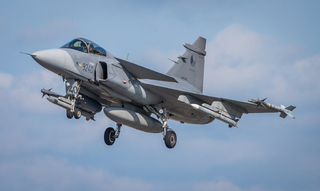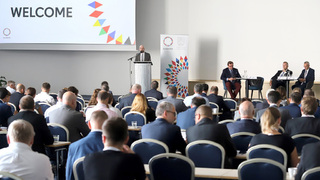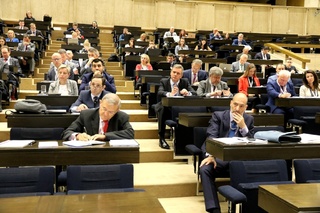On Tuesday May 17th, 2022, Brussels was a venue to the meeting of EU Defence Ministers. The discussions entertained the implementation of the Strategic Compass, EU missions and operations with emphasis on the EU Training Mission in Mali and last but not least, the Russian military aggression in Ukraine. Minister Černochová introduced the priorities of the upcoming Czech Presidency of the Council of the EU. A European Defence Agency (EDA) Steering Committee session, where the Ministers were briefed on the analysis of EU defence investment gaps, took place as part of the Ministerial.
One of the key points on the agenda of the EU Defence Ministers were EU missions and operations, including the security developments in locations with ongoing EU activities. The primary focus was on the Training Mission in Mali. Making use of the occasion, Minister Černochová informed her colleagues of the ongoing preparations of the Czech Armed Forces to take over the command of EUTM Mali, scheduled for the second semester of this year. The Ministers also agreed on the need to review the whole mission. “We need guarantees that the mission will be effective and our service members will stay out of harm’s way. Everything will be based on the negotiations with the Malian transition government. The presence of the Wagner Group, which basically means collaboration with Russia, cannot be endlessly tolerated,“ Minister Černochová said.
Strategic Compass and Czech Presidency priorities
Discussions also covered the implementation of the Strategic Compass which was approved in March, and the defence priorities of Czech Presidency. “Our objective is to help create a safe and prosperous Europe,” the Czech Minister summed up the priorities. The milestone necessary to achieve that goal is the solution of the crisis in Ukraine including the termination of the conflict itself, management of the migration crisis and provision of aid to the post-war reconstruction of Ukraine. A safer Europe will also be attained through an enhancement of EU energy security, strengthening European defence capabilities including the cyber space and through an overall increase of resilience of the European economy as well as its democratic institutions.
War in Ukraine on the agenda
Finally, Ministers of Defence of Finland and Sweden asked to take the floor to explain to their EU colleagues their countries’ plan to join NATO, as was recently announced. The Defence Ministerial meeting was closed by a working lunch to discuss support to Ukraine, with online attendance by the Ukrainian Defence Minister Oleksii Reznikov and participation of NATO Deputy Secretary General Mircea Geoanã in person.
Bilateral meeting with Slovenia
The Czech delegation also had a bilateral meeting with the Slovenian delegation led by Defence Minister Matej Tonin. Both parties also introduced their defence modernisation priorities and discussed possibilities for defence industries to cooperate on acquisitions and maintenance of equipment.
Minister Černochová also expressed her gratitude for the engagement of Slovenia in the Multinational Battle Group in Slovakia, with the Czech Republic in command, and thanked the Minister for the Slovenian contribution. “We have to make use of the lead role in the multinational battlegroup in Slovakia. We need to show that smaller nations can take the lead, which also disapproves Russian statements that smaller Allies are under the dictatorship of the bigger Allies,“ the Czech Minister underlined.
In the closing of the bilateral meeting, both delegations exchanged lessons they learnt from their respective Presidencies. The Czech delegation talked about the preparations for its Presidency which is going to start on July 1st, 2022, and its Presidency priorities, and the Slovenians shared the observations from their Presidency in the second semester of 2021.
EU Member States’ Armed Forces suffering from deferred investments
The session with EDA representatives opened the program of the ministerial meeting. Russian aggression in Ukraine changed the security environment in Europe. All countries now feel an increased need to complete equipping their armed forces and to accelerate defence modernisation processes, which naturally involves a substantial increase of defence budgets. Common acquisitions by multiple Member States may help reduce the overall cost. Defence Ministers also discussed options to streamline this complex process. EDA representatives introduced the analysis of EU defence investment gaps. Deferred modernisation investments were identified as the key area for the Member States to redress.
EDA set forth necessary steps in three timelines with specific priority areas. As the first instant step, EDA proposes to strengthen operational readiness through sufficient stocks of ammunition, common exercises and data sharing. The next phase includes short-term steps in a 5-year horizon to reinforce the existing capabilities, modernise air power, air defence, artillery, cyber capabilities, communication and information systems and satellite communication. The medium and long-term horizon has impact within the next 10 to 15 years with focus on modernisation, research and development of capabilities such as the main battle tanks and soldier systems, air defence and unmanned aerial systems, situational awareness in space, military mobility as well as cyber resilience.
For more pictures see:
